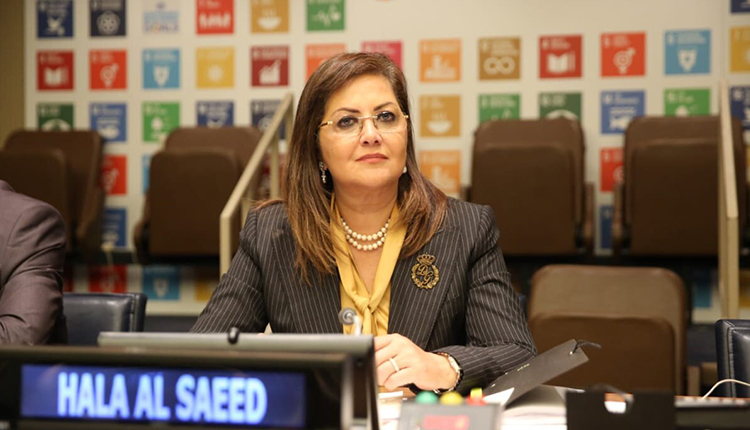Egypt’s Planning Minister Hala El-Saeed said there are two scenarios for recovering from the coronavirus crisis, the containment of the pandemic by June, or by December, adding that each of them will cause a shock to all sectors, Ahram Online reported.
El-Saeed made the comments during a video meeting on Friday with Emigration Minister Nabila Makram and a number of Egyptian businessmen who live abroad, to follow up the results of Egypt Can With Investment and Development Conference, which was held in October.
The meeting was part of an initiative that the emigration minister has launched to inform businessmen about the state’s efforts.
El-Saeed added that some sectors will need a longer time to get back to normal, while other sectors have considerable resilience and flexibility that will help them to recover rapidly, citing agriculture, information and communication technology (ICT), pharmaceuticals, chemicals, and construction as among the latter
group.
The minister stressed that Egypt’s economic growth will hinge on these sectors.
She added that most international institutions are unanimous about the severity of the coronavirus crisis as it has caused both supply and demand problems, with an effect on global value chains, the halting of manufacturing in many countries, wage decline and an increase in unemployment rates.
She noted that the crisis has caused global growth losses worth $5.5 trillion.
Speaking about international institutions’ outlook for the Egyptian economy, El-Saeed said that the World Bank pointed out that Egypt has one of the better performances among Middle East and North African countries, according to the statistical capabilities index.
The index showed that Egypt is expected to be the only country in the region to achieve positive growth rates in GDP per capita.
She added that the International Monetary Fund has also said that Egypt is the only country in the region that will maintain its economic growth.
The COVID-19 crisis is likely to affect Egypt’s economic growth rate over the third and fourth quarters of the 2019/2020 fiscal year, she said, adding that growth is expected to decline to 4.2 percent, down from 5.8 percent.
During the meeting, El-Saeed reviewed the Egyptian economy’s performance indices before the COVID-19 crisis, stating that economic growth had reached 5.6 percent, unemployment had declined to below 8 percent, the inflation rate average had decreased to 5 percent, and foreign reserves covered more than eight and a half months of imports.
Other indices include the non-petroleum trade balance deficit decreasing by 24 percent, net FDI investments up by 19 percent, expats’ remittances up 13 percent, and other fiscal and positive monetary measures that were expected to be a game changer regarding Egypt’s sustainable development.
“Egypt’s economy is expected to attain a growth rate of 3.5 percent in fiscal year 2020/2021 if the COVID-19 crisis is over by the end of current financial year 2019/2020, while the pandemic’s impacts are expected to last until the first quarter of fiscal year 2020/2021 or the entire half of the same financial year.
However, if the crisis lasts until December 2020, the targeted growth rate is expected to drop to 2 percent,” said the minister.
For her part, Makram called on the businessmen to extend their approaches about how Egyptian expatriates could engage with the country’s economy, affirming that Egypt is working to introduce venture opportunity facilities to alleviate the economic repercussions of the outbreak.
She also reviewed the state’s efforts to contain the virus, reassuring the businessmen of the conditions in Egypt and adding that the ministerial committee that was formed to deal with Egyptians stranded abroad by flight shutdowns has decided to give returnees an application to register their data while they are in quarantine facilities, which the state will use to stimulate them to engage in the Egyptian economy afterwards.
